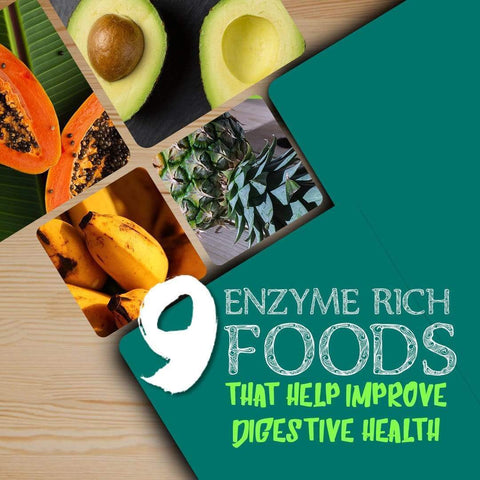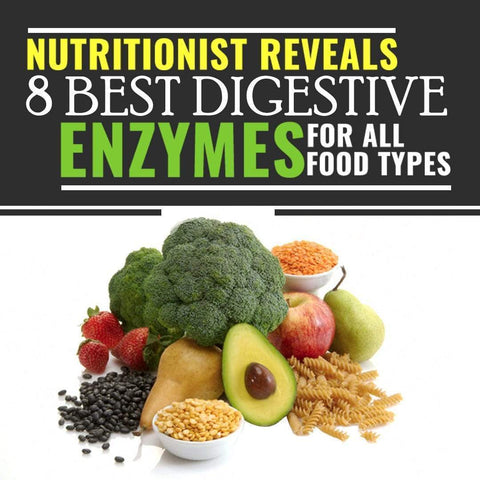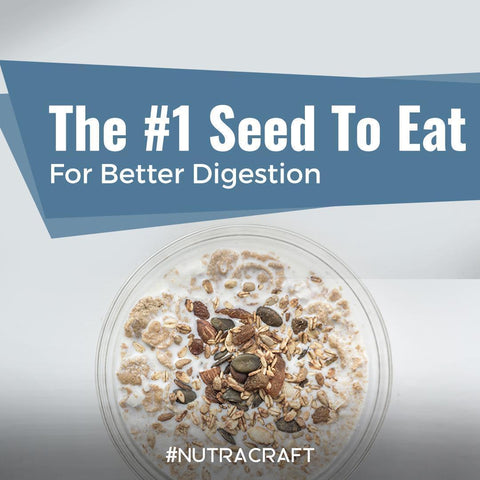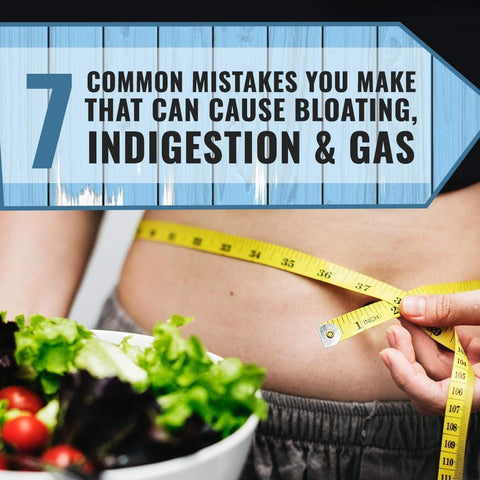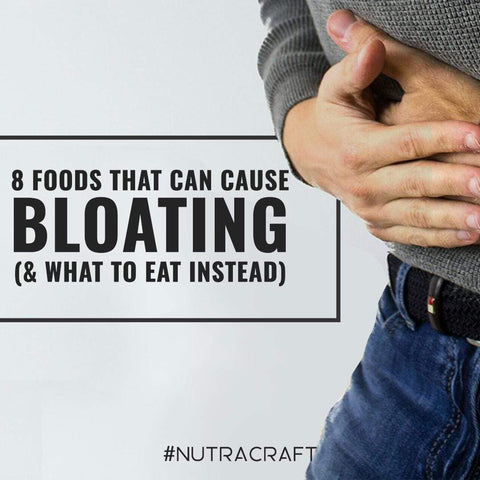
There’s no problem with having a little bit of gas in your life. The bacteria in your gut produce some gas in response to the natural sugars in some foods.
But some people who are prone to producing too much gas, suffer bloating and digestive discomfort (along with social embarrassment) when they eat too many gas-producing foods.
Some foods are especially gas-causing and, if they’re avoided, it can make a big difference in a sufferer’s life.
Some foods contain certain sugars that trigger the bacteria in our guts to produce gas. When these carbohydrates ferment, our gut bacteria can produce lots of uncomfortable gas.
FODMAPs
FODMAPs is an acronym for these fermentable sugars and stands for Oligosaccharides, Disaccharides, Monosaccharides, and Polyols. People who are prone to gas and bloating can benefit from reducing foods that have lots of FODMAPs in them. IBS (irritable bowel syndrome) sufferers, for example, often benefit from reducing FODMAPs in their diet because much less gas is produced.
Besides high-FODMAP foods, other foods are just plain distressing. Below, you’ll discover which foods fall into both of these categories.
Limit These Gas-Causing Foods
1. Too Much Alcohol

A little bit of alcohol might not be a problem (like a small glass of wine), but having a few drinks is too much for some people’s digestion. “Binge” drinking can cause digestive upset and gas 1.
After all, alcohol is toxic and can put stress on your digestive organs, including your liver, pancreas, and intestines.
2. Beans
Legumes have long been perceived to cause gas, and many are high in FODMAPs. For some people, they cause problems. Some research suggests that a little less than half of people develop gas after eating beans 2. That was for pinto beans and baked beans. Other types of beans caused gas in a much lower percentage of people 2.
Researchers say that the beans-gas connection has been over exaggerated, but if you’ve been experiencing a lot of gas, try not eating beans for a few days and see if things improve.
Exclusive Bonus! Download the FREE report ‘How to Eliminate Bloating & Digestive Upset in 3 Steps’ by clicking here.
3. Wheat
Some people have Celiac disease, which means they have a very strong reaction to gluten, a protein in wheat.
Some other people have an “intolerance” to wheat, which means that it causes some digestive distress when they eat this grain, although not as extreme a reaction as with Celiac disease 3. So stay away from wheat if you notice you have digestive problems after eating it.
4. Soft Drinks

Don’t drink soft drinks. They are horrible for your health in many ways (think diabetes, obesity, and liver damage), and in regards to gas, they could be causing trouble. The carbonation and high fructose content of these drinks can cause gas 4.The gas in carbonation can build up in some people and high amounts of fructose can cause your gut bacteria to produce lots of gas.
5. Cruciferous Vegetables
Unfortunately, the healthiest of foods can cause gas in some people. Cruciferous veggies like broccoli, cauliflower, bok choy, cabbage, and kale have detoxifying and antioxidant effects but can cause digestive bloating in some people due to their high FODMAP levels.
It’s those pesky natural sugars in these veggies that cause your gut bacteria to produce gas.
6. Dairy
Flatulence is a consequence of drinking milk or eating cheese for many people. A lot of the world can’t absorb the lactose sugar in milk, and it causes bloating and digestive distress. As researchers point out, “Lactase deficiency occurs in 21% of non-Hispanic whites but is more prevalent in those of African (75%), Hispanic (51%), and Native American (79%) background” 5.
7. Onions
High-FODMAP onions are full of the oligosaccharide sugars that can cause gas. If you’re eating onions, you’re giving fuel for gas!
There are other veggies that are high in oligosaccharide that can cause gas in some people. Asparagus, artichoke, garlic, leeks, and other vegetables are high in gas-causing sugars.
8. Pistachios, Cashews, and Almond

Beware of these high-FODMAP nuts. There are some nuts, however, that are are low in these sugars, and you’ll see which ones below.
What to Eat Instead
Yikes! It seems like there are so many foods - even healthy foods - that cause gas.
So what is there left to eat?
The good news is that there are plenty of foods that don’t give your gut bacteria fuel for flatulence.
Non-Gassy Meats
Meats certainly are low in FODMAPs, so feel free to enjoy some. After all, who ever thought of meats as high in sugar?
Non-Gassy Nuts
Nuts are mostly made of healthy monounsaturated and polyunsaturated fats and protein. Although some nuts do have a decent amount of FODMAPs, macadamia nuts, pecans, peanuts, pine nuts, and walnuts are especially low in gas-causing sugars.
Non-Gassy Grains
Oats, quinoa, brown or white rice, millet, and buckwheat are all said to be fine to eat (at least in moderate amounts) by FODMAP experts 6.
Non-Gassy Fruits
Blueberries, bananas, limes, mandarins, kiwi, oranges, pineapple, rhubarb, papaya, and strawberries are all considered low-fructose fruits that don’t cause gas.
Non-Gassy Vegetables
Not all vegetables are off- limits. Potatoes, bean sprouts, red bell pepper, chives, choy sum, carrots, collard greens, cucumbers, and lettuces are all low-FODMAP.
Do You Suffer from Excessive Gas and Bloating?
Are you sick of always feeling uncomfortable after eating?
Luckily, the cause of these digestive issues can be easily remedied using safe, natural methods! When you focus on reintroducing these enzymes, - your body will learn how to tolerate food properly, - completely eliminating excess bloating and gas!
Our top nutritionist Evan Burns shares his revolutionary strategies designed to banish excess bloating and gas. After incorporating them into your lifestyle, you can finally feel comfortable with your body again.




